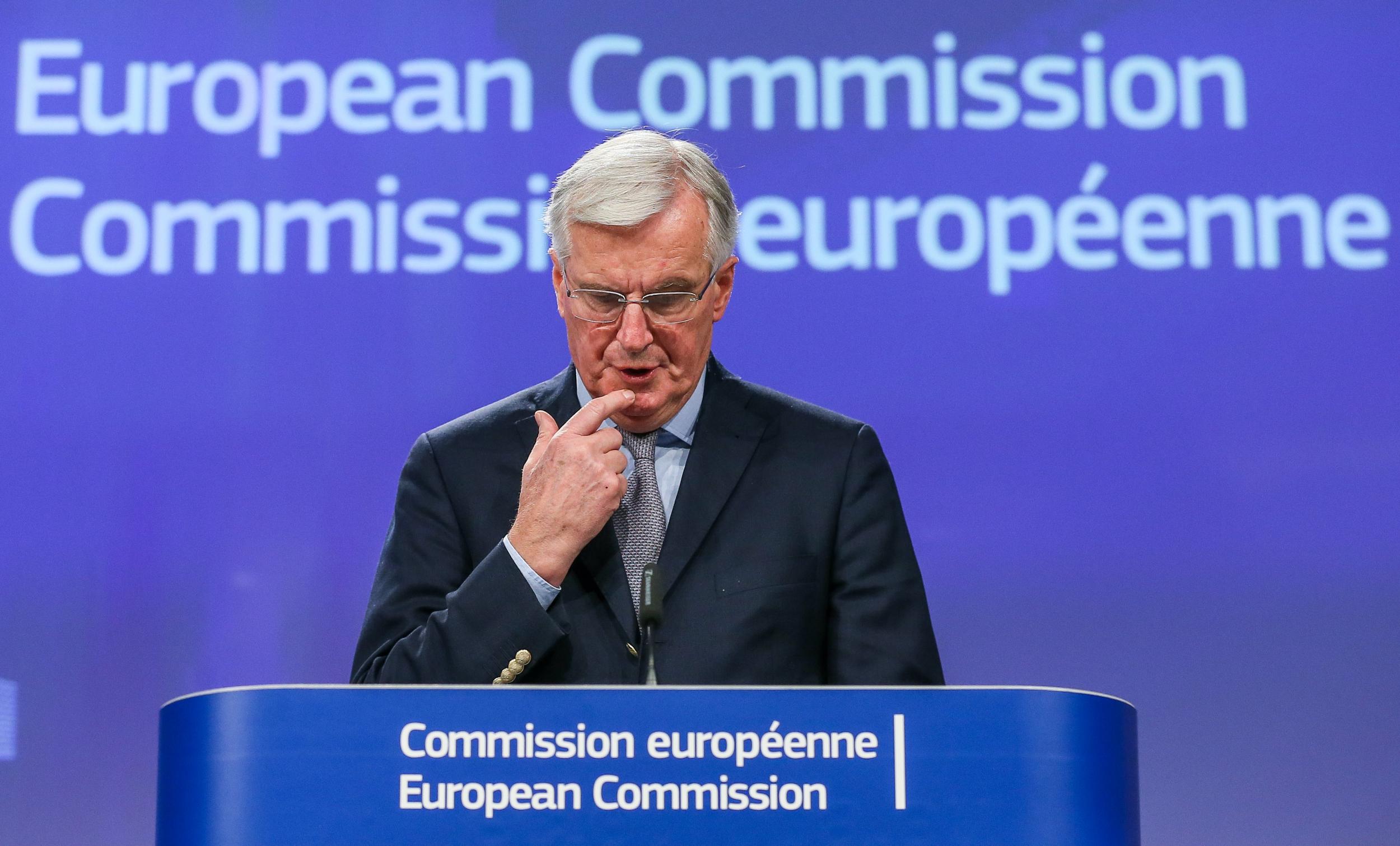Brexit: David Davis consults lawyers over EU preparations for no deal
The Brexit Secretary says the EU is scaring British businesses
David Davis has privately suggested that EU preparations for a ‘no deal’ Brexit are “damaging” UK interests and spooking British businesses into moving abroad.
A leaked letter penned by the Secretary of State for Exiting the EU shows he has consulted government lawyers about European Commission “measures” which he believes could breach UK rights as a member state and put Britain at a disadvantage.
The warning comes despite the British government implicitly threatening a ‘no deal’ scenario itself to extract concessions from Brussels, with Theresa May having said that “no deal is better than a bad deal”.
Mr Davis said there were “a growing number of instances where the UK is treated differently by EU institutions before we leave the EU” and that this was “frequently damaging for UK interests”.
“The EU has adopted a number of measures that put agreements or contracts are risk of being terminated in the event of a ‘no deal’ scenario and/or would require UK companies to relocate to another member state,” he states.
Mr Davis cited Commission advice to businesses that they might have to do certain things – such as regulatory compliance – within EU borders after Brexit. He insisted that this was not certain because of the possibility of negotiating a positive future relationship.
The minister however admitted that “chances of a successful legal challenge against the measures taken so far are low” and that there would be a “high risk politically and financially” to taking the EU to court.

In the letter, addressed to Theresa May, Mr Davis pledged to launch a counter-offensive to reassure UK businesses and also “press our case with the Commission”, including Michel Barnier’s negotiating team.
The missive, first obtained by the Financial Times, was also sent to Sir Jeremy Heywood, the UK’s top civil servant; Sir Tim Barrow, the UK’s ambassador in Brussels; Oliver Robbins, Downing Street’s Brexit chief; and Philip Rycroft, the top civil servant at DExEU.
The Government has itself not shied away from the prospect of a no deal. Other than Ms May’s endorsement of the plan as a fall-back, there are reports that the Government is set to appoint a dedicated “minister for no deal” – though the post has as yet failed to formally materialise in this week’s reshuffle.
Both the UK and EU however say they believe a deal can be struck, especially following progress on separation issues in December.

Reacting to the letter on Tuesday, a European Commission spokesperson said: “We in the European Commission are surprised that the United Kingdom is surprised that we are preparing for a scenario announced by the UK government itself.
“After all it was Prime Minister May herself who said in her Lancaster House speech in January 2017 and repeated in her Florence speech in September that, and I quote: ’No deal for briton is better than a bad deal for Britain. It is right that the government should prepare for every eventuality.’
“We take these words by the Prime Minister very seriously and it is therefore only natural that in this house we also prepare for every eventuality.”
There are no dates yet scheduled for future set-piece talks this year; both sides hope to agree details of a transition period before March, where they will then hope to move to talks on the framework for trade and the future relationship.
The EU is insisting that the deal be wrapped up by October to give the European Parliament and other bodies time to scrutinise, formalise, and approve the deal in time for the UK’s departure under Article 50 in March 2019.
Join our commenting forum
Join thought-provoking conversations, follow other Independent readers and see their replies
Comments
Bookmark popover
Removed from bookmarks